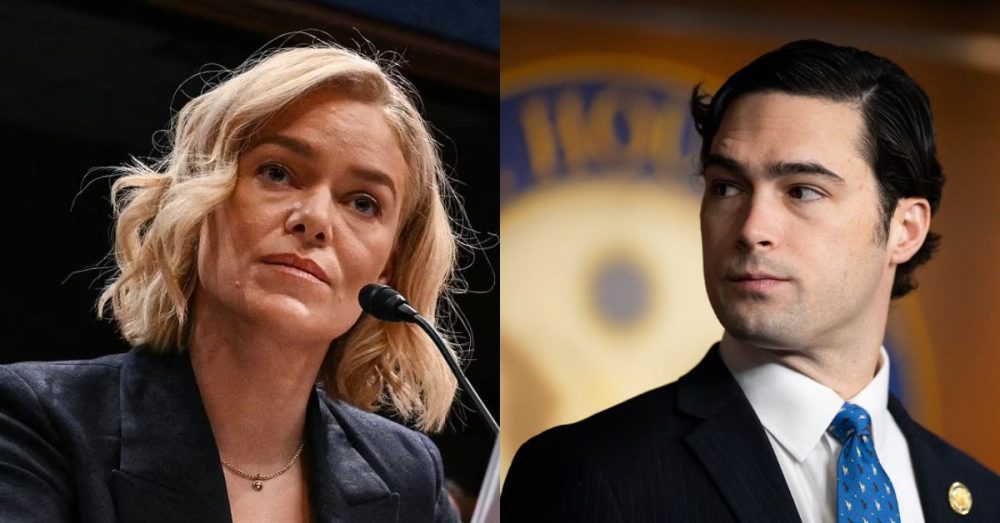In a fiery viral exchange, Rep. Brandon Gill (R-TX) held NPR’s Katherine Maher accountable for controversial social media posts she made over the past few years, sparking a back-and-forth exchange that raised significant questions about virtue signaling and media accountability.
The confrontation, which Gill posted on his Instagram account, occurred during a recent House Subcommittee hearing. Maher, NPR’s CEO and president, faced scrutiny over a series of past tweets that have since drawn intense attention.
Incredible to witness 🔥🔥🔥
Watch Rep. Brandon Gill verbally ANNIHILATE Marxist Katherine Maher of NPR over her posts she made on X. pic.twitter.com/Pkt9HD3lAi
— Liz Churchill (@liz_churchill10) March 26, 2025
Rep. Gill began by challenging Maher on her belief that America was addicted to “white supremacy.” Maher, who said her views have “evolved” over the past five years, initially hesitated to explain the context of her 2020 tweet making that statement.
“I believe that I tweeted that, and I, as I’ve said earlier, I believe much of my thinking has evolved over the last half-decade,” Maher responded, but Gill pressed further.
Gill referenced Maher’s prior tweets about the book The Case for Reparations, which she had once mentioned reading. At first, Maher denied having read it, but when confronted with a January 2020 tweet in which she claimed to have taken a day off to read it—mentioning it by title—she acknowledged her mistake.
“I don’t recall that I did. No doubt that your tweet there is correct, but I don’t recall,” she said.
The exchange intensified as Gill probed Maher’s views on race and reparations. He asked if she believed white people inherently felt superior to other races, a claim Maher had made in another tweet, according to the congressman.
Maher admitted to posting that tweet but clarified that it reflected on her personal experiences of growing up with advantages, denying that she believed all white people inherently feel superior to other races.
“I think I was probably reflecting on what it was to be to grow up in an environment where I had lots of advantages,” Maher said.
Gill, however, wasn’t satisfied with her explanation, noting that Maher had tweeted about her “superior” upbringing and calling into question whether she supported paying reparations.
“I never said that,” Maher replied when asked directly if white people should pay reparations.
But when Gill brought up another past social media post where she wrote, “Yes, the North, yes, all of us, yes. America, yes, our original collective sin and unpaid debt. Yes, reparations,” Maher seemed to backpedal once again, suggesting the reference was not to “fiscal reparations” but to something more abstract.
Gill didn’t relent, questioning whether Maher herself had ever paid any reparations, to which she simply admitted, “Sir, I don’t believe that I’ve ever paid reparations.”
The questioning then shifted to Maher’s stance on looting, a contentious issue during the Black Lives Matter protests.
Maher had previously described looting simply as “counterproductive,” despite publicly endorsing protests that sometimes turned violent, according to Gill. When asked whether she believed looting was morally wrong, Maher responded, “Of course,” though she reiterated that it was “counterproductive.”
“You believe it’s morally wrong, though?” Gill asked, pressing her for clarity. “It’s a very different way to describe it.”
“It is both morally wrong and counterproductive, as well as being illegal,” Maher responded.


